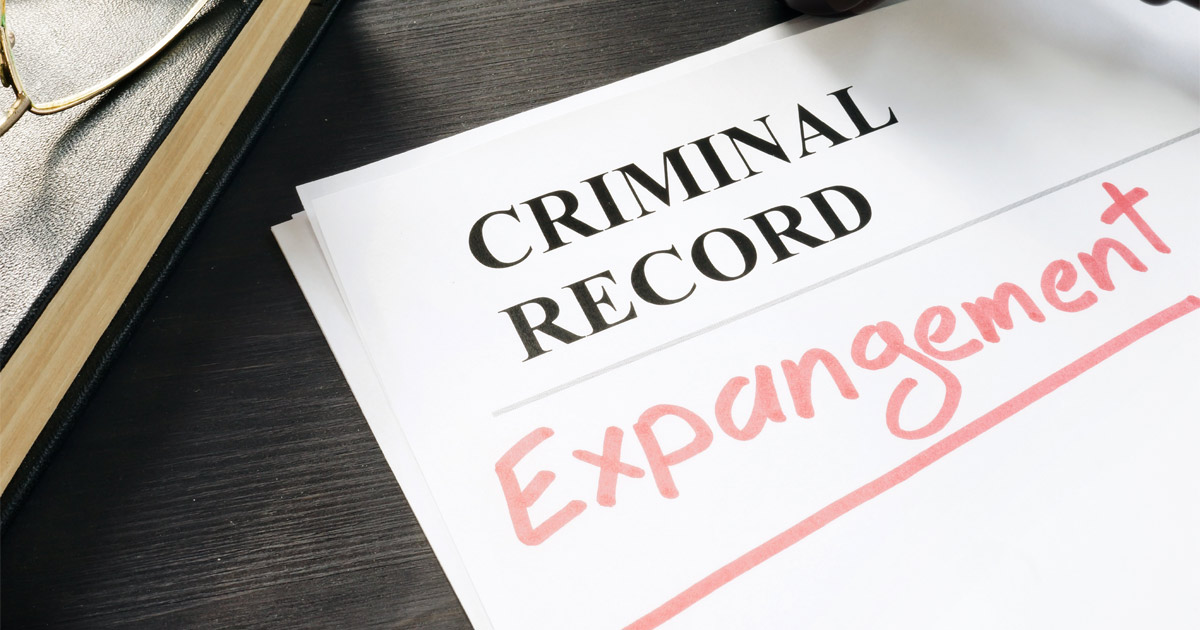Can You Get a Felony Expunged in NJ?
Posted on: September 20, 2022
Expungement can be a complicated matter. When a criminal record has been expunged, any record of that person’s criminal history is gone.
On one hand, there are crimes that most people feel should be clearly visible to help keep members of society safe. On the other hand, there are crimes that most people feel are not serious enough to warrant a permanent criminal record.
It is difficult for people who have made a mistake in their past to move forward when their criminal record is indelible. Getting a good job is especially difficult, which is why New Jersey offers expungement for those who have paid their dues and are considered productive members of society.
If you at a disadvantage because of a criminal record, you should understand the basics of expungement, and if the record in question meets the requirements for removal.
What Is Expungement?
To ‘expunge’ something is to completely remove or erase it. An expungement of a criminal record is the removal and isolation of all records of a person’s crimes, arrests, charges, trials, or dispositions related to an offense that took place in the criminal or juvenile system of justice.
In other words, anything on file with any law enforcement agency is wiped clean. A person or place of employment running a background check will not see any signs of a criminal record if an expungement took place prior to being checked.
What Crimes Cannot Be Expunged?
In New Jersey, there are two basic offenses with which a person can be charged, a felony, considered a crime, and a disorderly person’s offense, considered a misdemeanor. Although most felonies can be expunged, the more serious ones cannot.
The following crimes CANNOT be expunged:
- Homicide
- Kidnapping
- Human Trafficking
- Aggravated Sexual Assault
- Terrorism
- Arson
- The selling or manufacturing of child pornography, and the Prostitution of Children.
What Is the Process for Expungement?
First, a petition for expungement must be filed in the superior court where the offense took place. Even though a person can file without a lawyer, it is recommended that a lawyer be retained due to the complications of the process.
Once a petition has been received, the judge will sign an expungement order if the expungement is to move forward. Afterward, all paperwork must be mailed to the appropriate agencies, including the police department and court where the offense took place.
If no law enforcement official objects to the expungement, the judge will most likely grant the expungement without a hearing. If there is an objection, a hearing will take place, then the judge may ask the petitioner questions to make a determination for expungement.
What Are the Requirements for Expungement?
Except for specific felonies listed by the state, if a person has committed only one felony, that person is eligible for expungement. For any expungement to be granted, a person must have had a clean record during the required waiting period.
For a person with only one felony and up to three disorderly persons offenses, the waiting period for eligibility is five years from the completion of all requirements, such as prison sentence, probation, and community service. A person with up to four disorderly persons offenses but no felony may be eligible in five years.
If more than one felony or four disorderly persons offenses exist, an expungement may be granted only if the conditions are met for what is called a ‘clean slate expungement.’ In this instance, the court may expunge several qualifying felonies and an unlimited number of disorderly persons offenses. The waiting period for a clean slate expungement is ten years.
Freehold Criminal Lawyers at Ellis Law, P.C. Represent Those Who Qualify for Expungement.
If you have been constrained by a criminal record and want a new start, you need a competent lawyer on your side. Our experienced Freehold criminal lawyers at Ellis Law, P.C. will take all the necessary steps and beyond to give you the best chance of having your record expunged. Call us at 732-308-0200 or contact us online for a free consultation. Located in Freehold, New Jersey, we serve clients in Freehold, East Brunswick, Jersey City, Middletown, Neptune, Hudson County, Union County, Essex County, and Ocean County, New Jersey, as well as Brooklyn and New York, New York.


